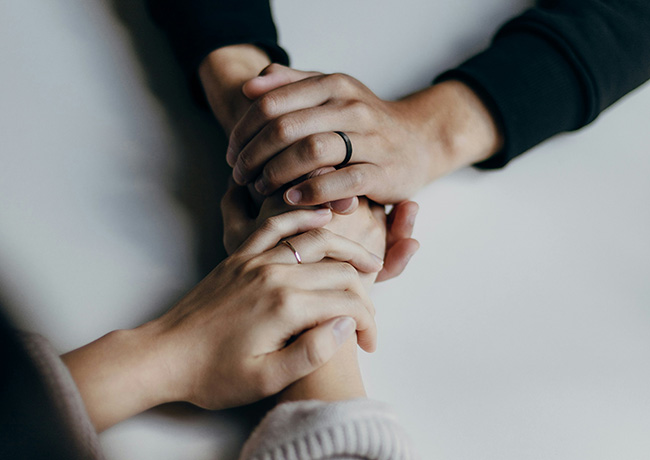Viewpoint: Care Court helps mentally ill heal with compassion, dignity

Image/courtesy of Priscilla Du Preez
By Lisa H. Wong | Special to the Courier
Many families across Los Angeles County know what it’s like to watch a loved one grapple with mental illness. These illnesses can range from depression to bipolar disorder, to schizophrenia. Whether you live in Willowbrook or Westwood, whether you’re African American or Asian American, mental illness can impact anyone, regardless of race, ethnicity, or income level.
Without treatment, a mental illness can place the people we love in danger of incarceration, hospitalization, or even at greater risk of serious harm. Unlike a physical health issue such as asthma or diabetes, many individuals feel powerless watching their loved ones suffer without knowing what to do.
What keeps people from getting the help they need? Too often it’s the stigma around mental illness. When people are afraid, ashamed, or just don’t understand mental illness, it makes it hard to talk honestly about this incredibly important health issue. When they can’t talk about their struggles with those closest to them, it makes it hard for them to seek help. These challenges can increase when dealing with more severe mental health issues.
There are programs and services available to help those with severe mental illness heal with compassion and dignity. And the first step toward healing is to reach out for help.
On December 1, 2023, California launched a new, completely voluntary program called Community Assistance, Recovery, and Empowerment, also known as CARE Court. It helps adults with untreated schizophrenia and associated psychotic disorders — and their families — get the services they need.
We know there are members of our community with this condition who cycle in and out of jail or may experience homelessness as a result of their mental condition. If this describes someone you care about, know that there are steps you can take to get the support they need. Participants in CARE Court can get free counseling, medication, housing options, social services, and other supports for up to 12 months. Their involvement in this program can be extended for an additional year, if needed.
Family members, roommates, clinicians, and others can start the process by filing a petition that refers an individual for help. If they meet the criteria for CARE Court, a team of experts will work with them to create a plan made to fit their specific needs. CARE Court participants, and the people who care for them, can get services in their community that support their recovery and well-being.
Empowerment is key. CARE Court is voluntary; participants can choose to leave the program at any time. Program participants get free legal representation, and they can choose a supporter to help them navigate the process. The process is civil and there are no civil or criminal penalties if someone chooses not to participate.
While CARE Court focuses specifically on helping people with untreated schizophrenia or other psychotic disorders, the Los Angeles County Department of Mental Health has many other programs to help people who are experiencing a wide range of mental health issues. Our top goal is to help Angelenos who are struggling — our neighbors, loved ones, family, and friends — get the services they need to heal, live safely in the community, and thrive. CARE Court is one way we’re working to ensure that there is no wrong door when someone needs support.
If you or someone you care about is struggling, please reach out for support. You do not have to suffer in silence or feel powerless to help a loved one. Breaking the stigmas around mental health can open a new path to healing, recovery, and wellness.
To learn more about CARE Court or find other resources for people with mental illness, visit DMH.LAcounty.gov/CareCourt.
Dr. Lisa H. Wong, Psy.D., is the director of the Los Angeles County Department of Mental Health.







0 Comments